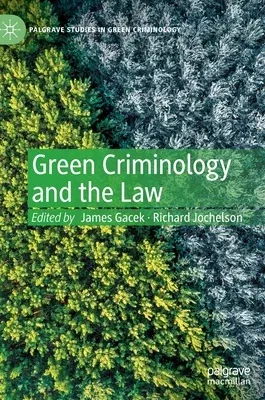Green Criminology and the Law (2022)Hardcover - 2022, 22 December 2021

Qty
1
Turbo
Ships in 2 - 3 days
In Stock
Free Delivery
Cash on Delivery
15 Days
Free Returns
Secure Checkout

Part of Series
Palgrave Studies in Green Criminology
Print Length
415 pages
Language
English
Publisher
Palgrave MacMillan
Date Published
22 Dec 2021
ISBN-10
303082411X
ISBN-13
9783030824112
Description
Product Details
Book Edition:
2022
Book Format:
Hardcover
Country of Origin:
NL
Date Published:
22 December 2021
Dimensions:
21.01 x
14.81 x
2.54 cm
ISBN-10:
303082411X
ISBN-13:
9783030824112
Language:
English
Location:
Cham
Pages:
415
Publisher:
Weight:
675.85 gm